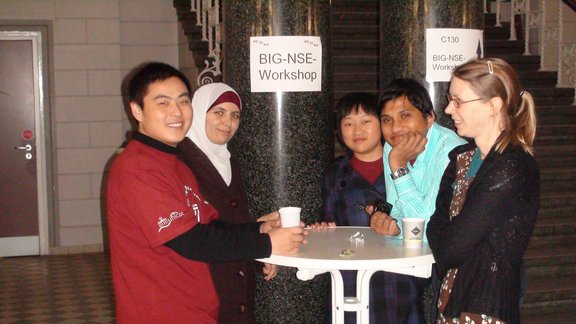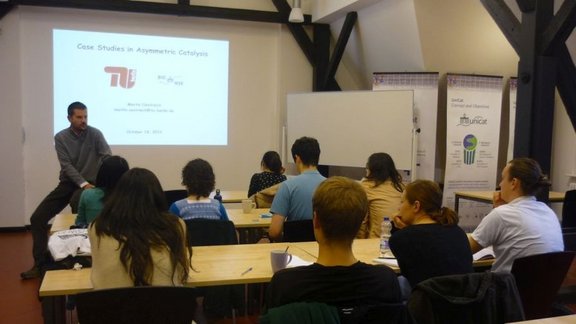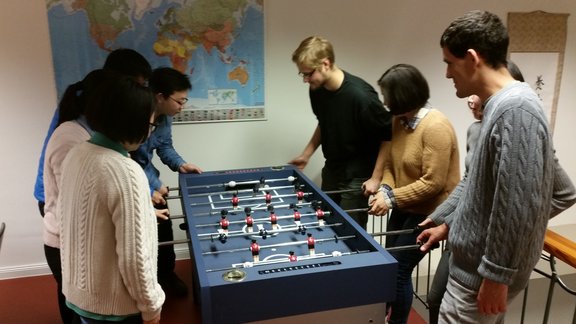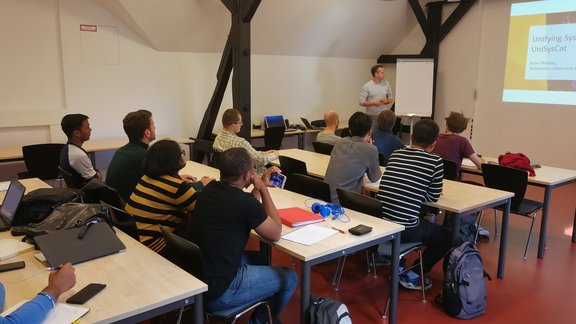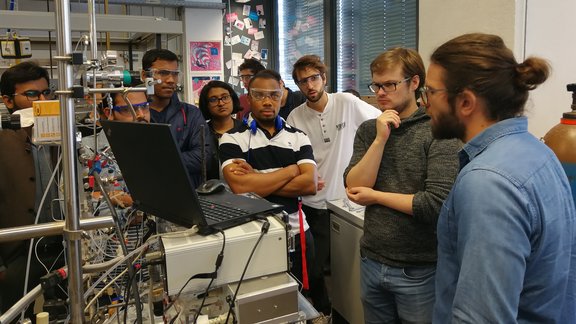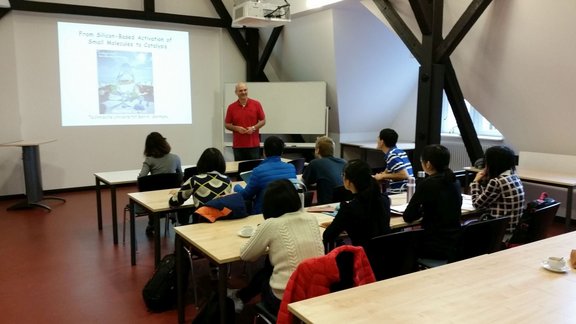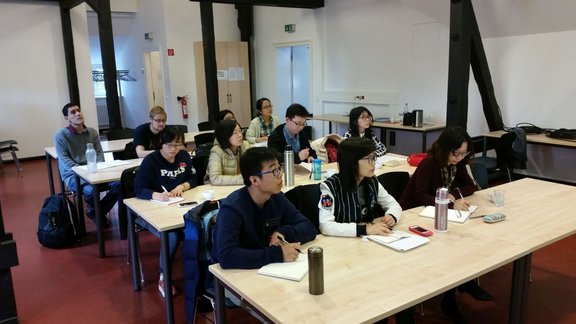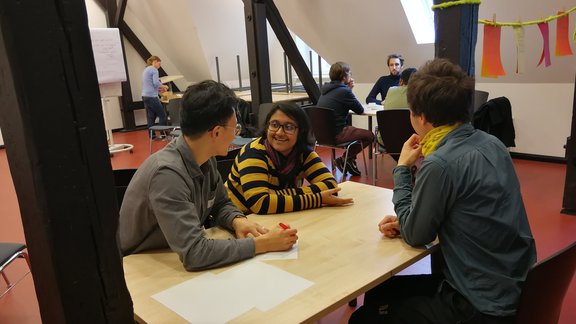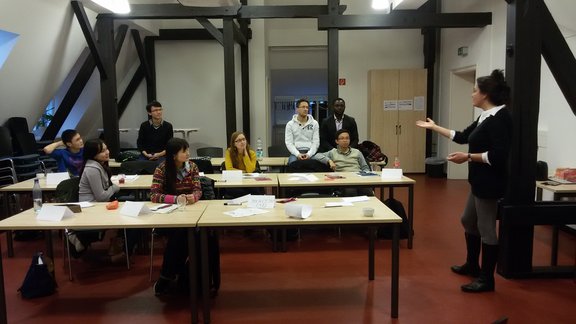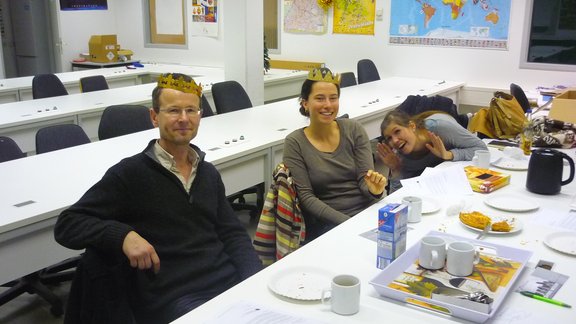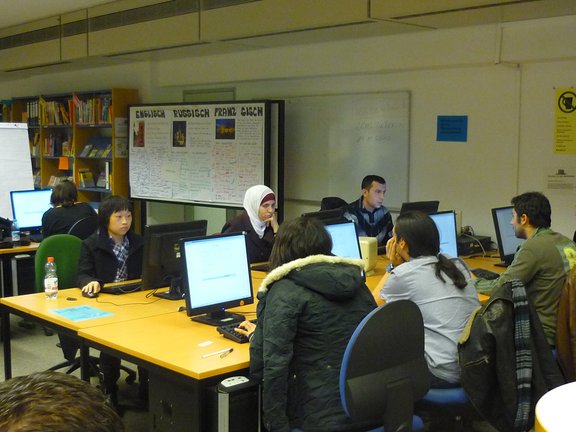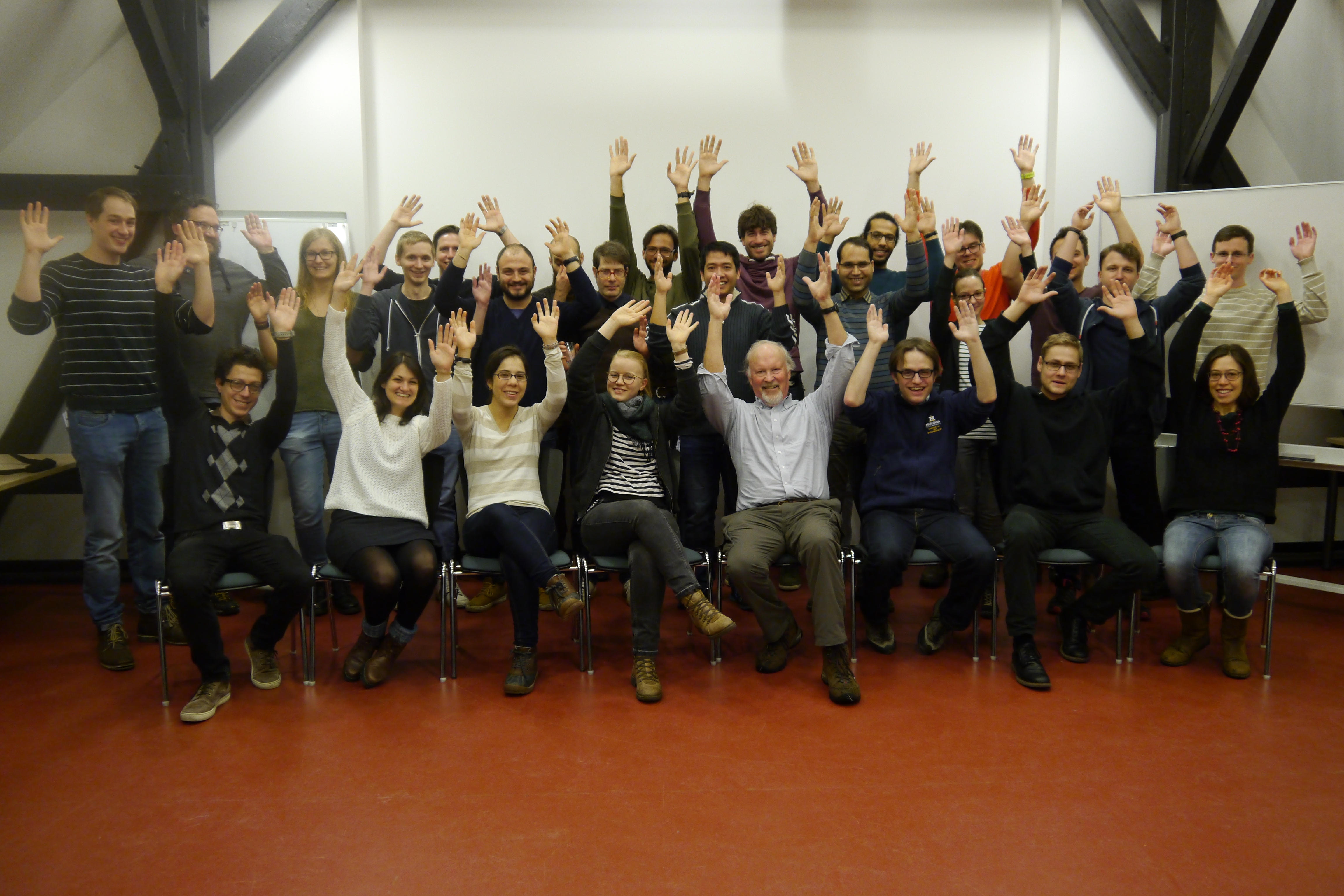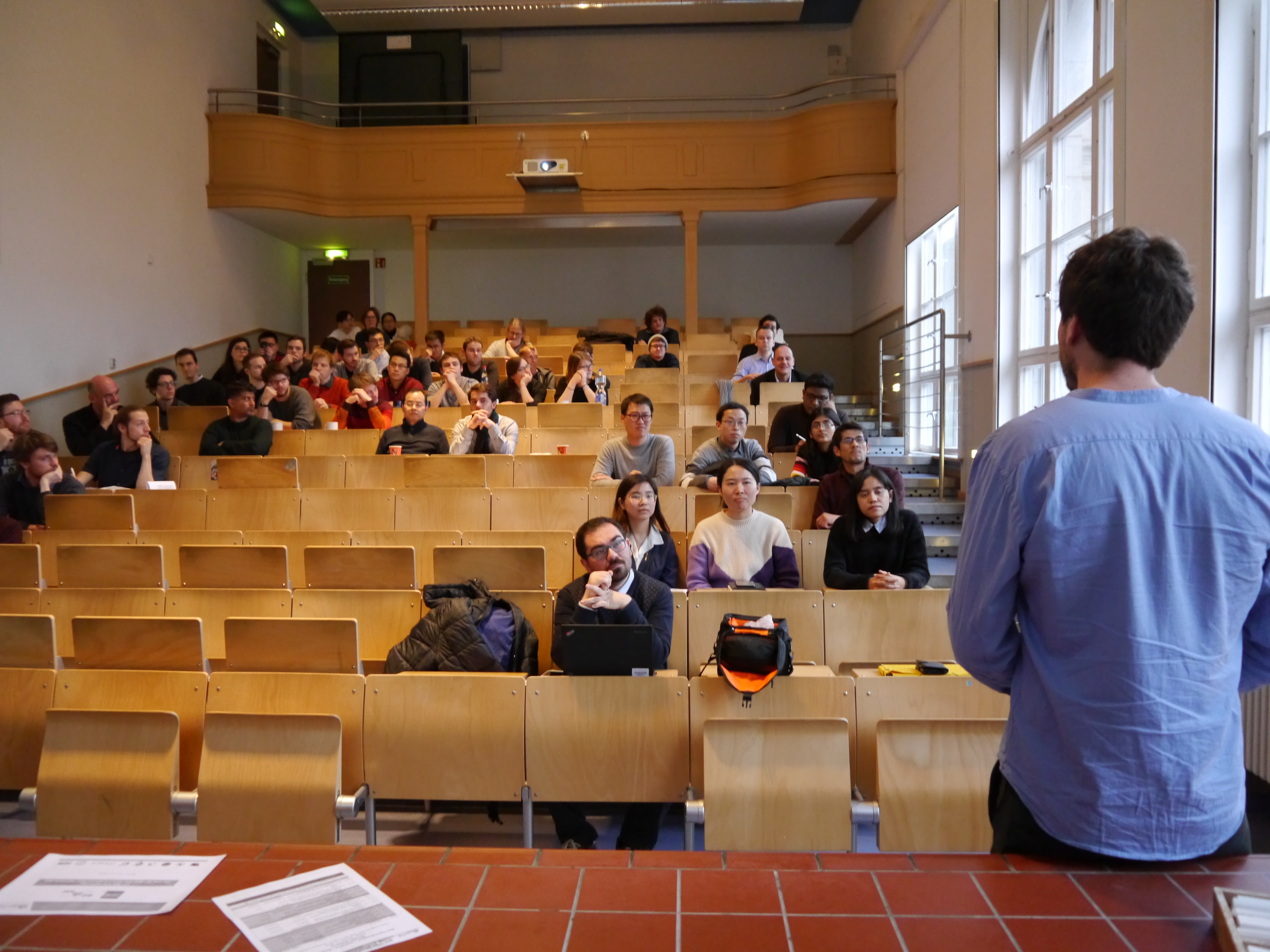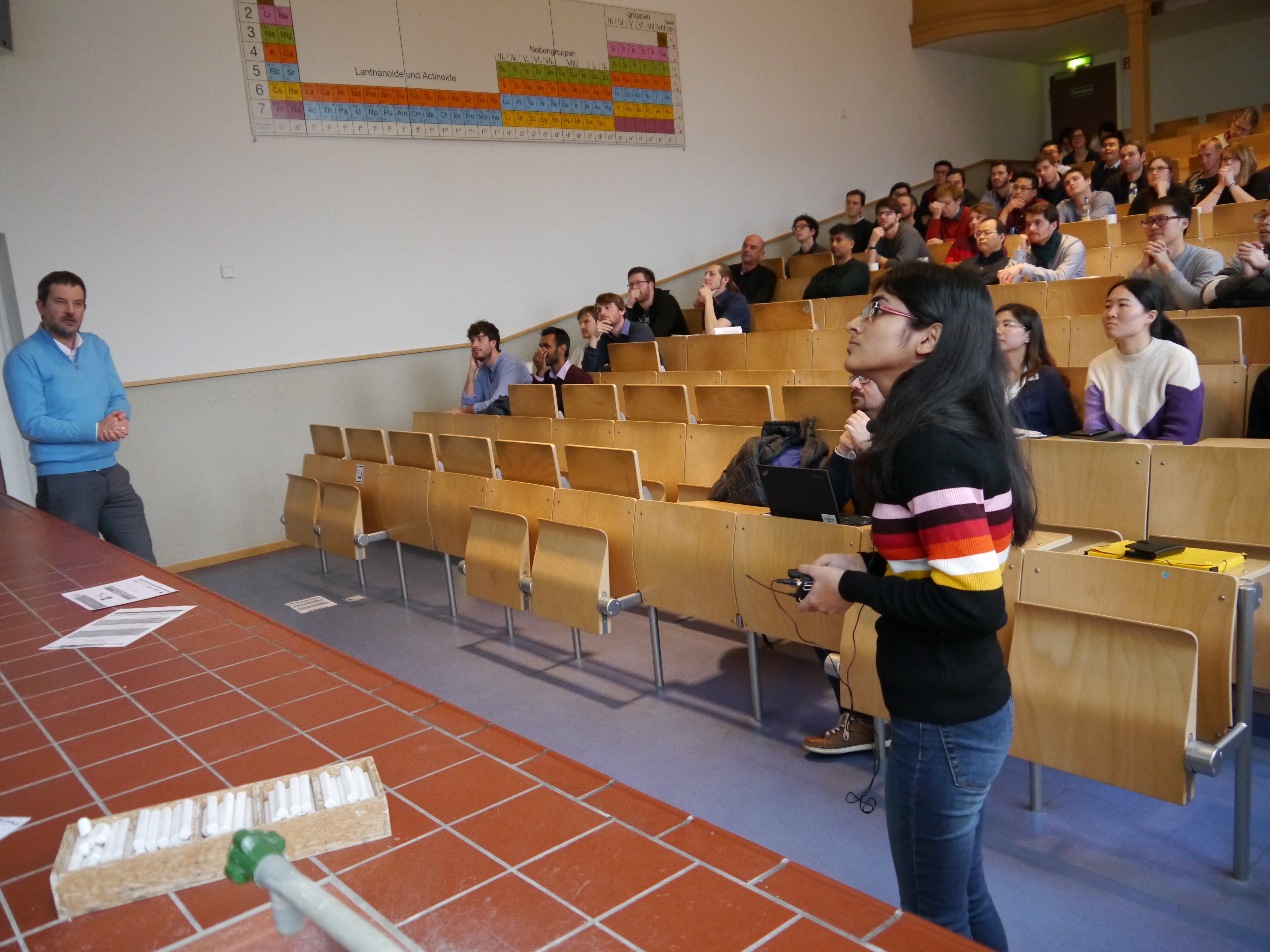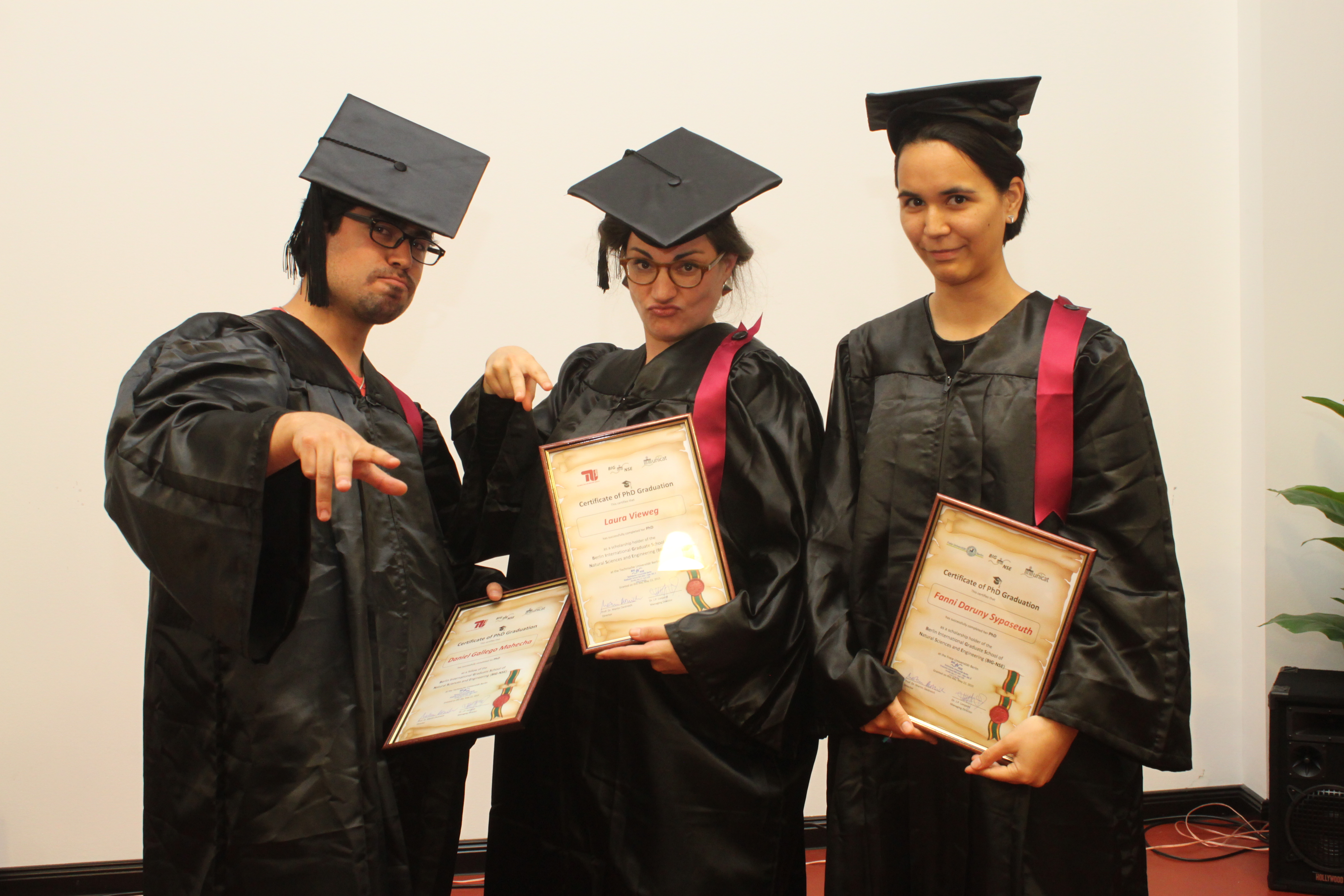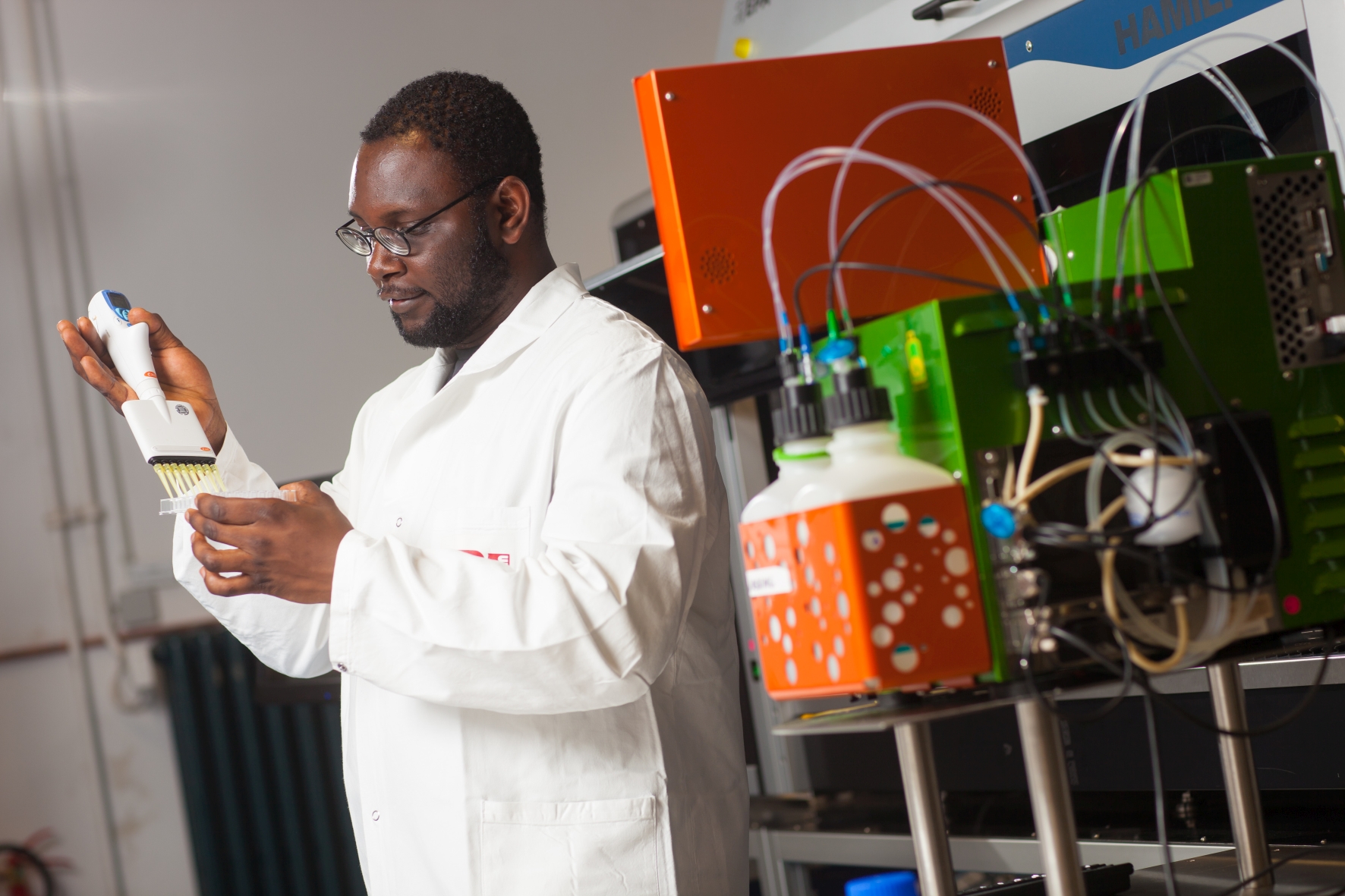Program of past initial phases HERE! [Old BIG-NSE Website]
------------------
Students admitted to the center/school begin by going through an “initial phase,” usually of three-and-a-half months duration (from October to mid-January). One aim of this phase is to integrate the different branches of science and engineering and establish a common scientific language among the new PhD students.
It requires a basic knowledge of the other fields to be able to appreciate the respective problems. Even though this is less of an intellectual problem for talented students, such efforts are hampered by the general tendency to suppress issues that are at first sight only loosely related to the students' problems. However, interest in such problems increases significantly if students are involved in groups with other students from different disciplines.
Thus, the strategy of sensitizing students to topics beyond their own disciplines relies on the combination of a scientific education program introducing the fundamentals of the complementary research fields, and the establishment of a social network among students. During this initial phase, the students therefore not only attend the same lectures and courses but also work and relax together in the same rooms.
In detail, the initial phase consists of the following elements:
- introduction to the Cluster of Excellence UniSysCat in the form of
- a few presentations
- excursions to all participating labs at the nine institutions
- basic lectures
- soft skills courses
- language courses
- preparation of the PhD work plan
- social activities
The diverse elements are presented in detail below. After the "initial phase," the students join their respective labs to start their research. However, during the first year they continue to be regularly invited to workshops, seminars and soft skills courses. Thus, their first year at EC2/BIG-NSE remains quite curricular.
